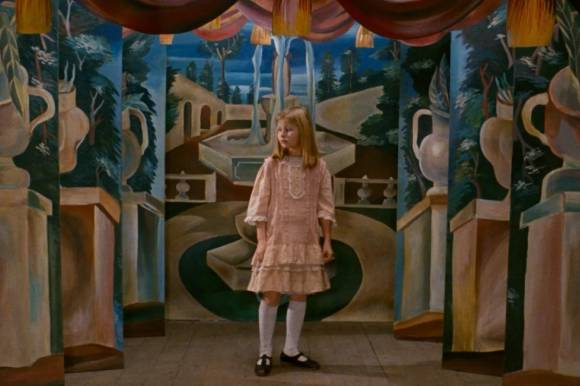For 60 years, the Prague born author has led the viewers into boudoirs of dark humour and surreal metaphors and thickets of fairytale stories and absurd, creating a unique opposition to various powers (having lived through six political regimes) and conventions. Švankmajer has worked in countless media and lengths of film, gaining recognition with his sumptuous static frames and mixed-technique and clay animation imbued with a breath of Surrealism, psychoanalysis, and European post-war modernism. RIGA IFF will present his most acclaimed and also underrated feature and short films, previously not screened in Latvia –- among them his early experiments from the 1960s, a gothic version of Alice in Wonderland, meditations on fetishes, food, politics, and the role of art in public and personal life.
“Similar to Luis Buñuel’s razor in An Andalusian Dog (1929), Švankmajer provocatively split the confines of reality. His films, created in the political and historic soil of Eastern Europe and Czech Republic, offered up dreamscapes, nightmares, fairytales, and skits, and created an uneasy, hard to define opposition to the political regime. Currently, surrounded by the anonymous stream of online images, only the odd one among us knows that the scenes of objects, clay or mixed-technique animation are created by Švankmajer. This is why the festival invites the viewers to discover the largest continent of film history – the unconscious – and make the experience personal,” tells IN KINO VERITAS curator Dārta Ceriņa.
The RIGA IFF retrospective will include Švankmajer’s possibly most known feature film, Alice (1987), regarded as the most astute interpretation of the heroine, based on the characters and universe of Lewis Carroll’s Wonderland. The director has deemed the book as the best literary work created by humankind. The festival will also screen the provocative feature film Conspirators of Pleasure (1996) – a journey into the Decameron-esque tales of Prague and the absurd-filled lives of six strangers. A screen fairytale for adults, it unabashedly reflects on the pleasures of the flesh and the individual, urge for satisfaction, and inability to communicate.
Both in person and online, an expansive odyssey of Švankmajer’s personal and creative life will be offered by Adam Olha and Jan Danhel’s documentary Athanor – The Alchemical Furnace (2020), a travelogue through the filmography of the Surrealist of the Eastern bloc, studio Athanor, and his fascinating biography. The culmination of the retrospective will be a screening of 9 Švankmajer’s short films, showcasing a rally of unpredictable styles, themes, and forms, among them such works as Flat (1968), Meat Love (1989), The Death of Stalinism in Bohemia (1991), Food (1992), and others.
Švankmajer’s retrospective will be screened over both festival weekends. Feature film Alice will be screened on 19 October at 16.00, Athanor – The Alchemical Furnace will be screened on 20 October at 16.00 in person and online. On 26 October at 16.00, the short film selection will take the viewers on a journey through the labyrinth of Czech Surrealism, but on 27 October at 18.00, the retrospective will conclude with the fairytale for adults, Conspirators of Pleasure. Tickets to Švankmajer’s retrospective go on sale on 18 July on RIGA IFF website, (rigaiff.lv) and at Biļešu Serviss box offices.
From 17 to 27 October, RIGA IFF will delight the senses of filmgoers with more than 100 screenings of bold and fresh filmmaker visions, selected from the world’s most prestigious film festival programmes, as well as from the kindred Baltic Sea region cinema. Until the full festival programme announcement on 17 September, RIGA IFF will continue to reveal other highly artistic works of this year’s programme – films awarded at Rotterdam, Berlin, Cannes, Venice, and other film festivals, as well as bold hidden gems of contemporary cinema. Follow festival updates on rigaiff.lv and festival social media accounts, as well as by subscribing to RIGA IFF newsletter.
RIGA IFF's main partner is the media and technology company Tet. The festival is made possible with the support of the State Culture Capital Foundation, EU programme “Creative Europe – MEDIA”, Riga City Council, and the National Film Centre of Latvia.




















